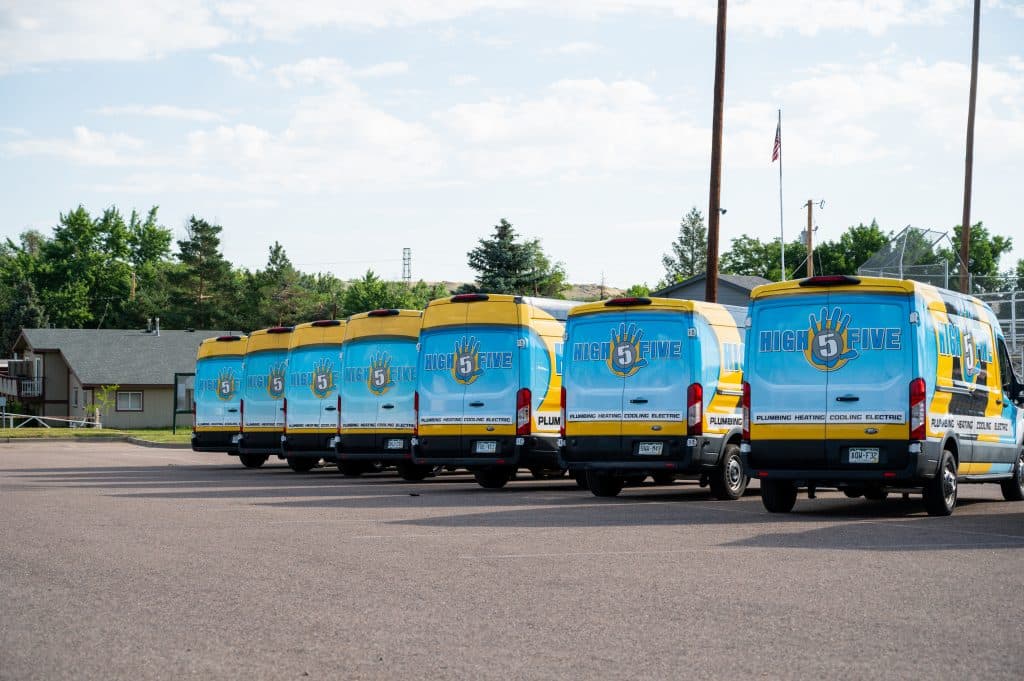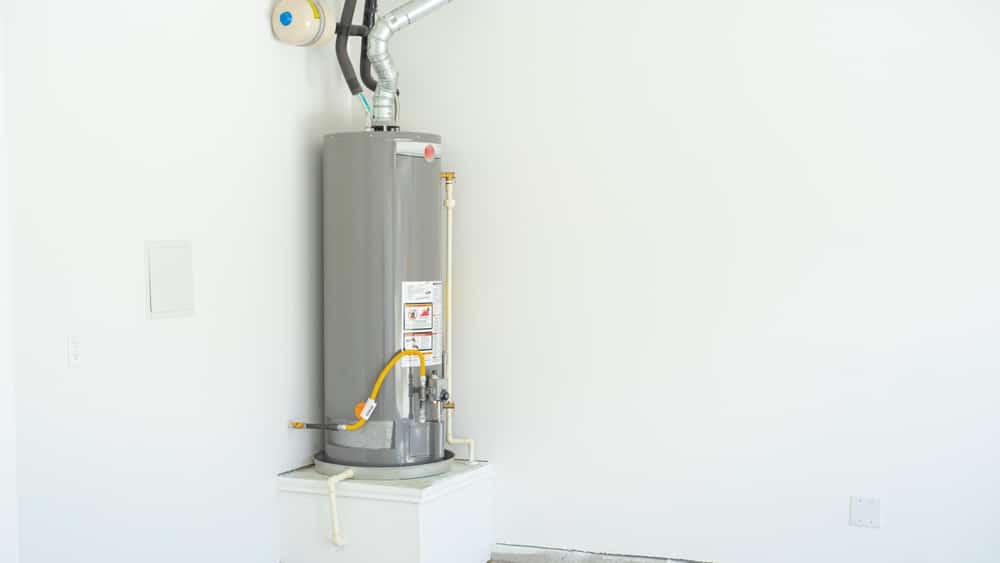After a beautiful day at the Denver Botanic Gardens, the last thing you want to come home to is a broken or leaking water heater. All water heaters have a general lifespan before they finally need replacement. So, how long do water heaters last,— and how do you know when to replace them? The experts at High 5 Plumbing, Heating, Cooling, and Electric have some helpful insight into what you should expect from your water heater in terms of longevity and reliability, and signs that may indicate you should replace it.
How Long Do Water Heaters Last? (Tank vs. Tankless)
The typical lifespan of a water heater varies based on a few factors, including the type of water heater you have and how well it’s maintained. How long does a hot water tank last versus a tankless model? Here’s a general overview of the average water heater lifespan based on whether it’s a tank or tankless style and whether it’s gas or electric.
Tank vs. tankless
A traditional tank water heater uses a storage tank, while a tankless water heater does not.
Tank-style water heaters may have a total lifespan of between eight and 15 years with proper maintenance. Tankless water heaters generally last anywhere from 15 to 20 years or more.
Both types of water heaters require periodic flushing to remove excess sediment and other buildup.
Electric vs. gas-powered
An electric heater operates using electricity, while a gas-powered water heater uses natural gas or propane to heat the water in your home.
- Electric water heaters generally have a longer lifespan than gas water heaters and tend to last from 10 to 15 years.
- Gas water heaters typically last between eight and 12 years, on average.
- Heavy and frequent use of hot water may impact and potentially shorten the lifespan of your gas or electric water heater.
Signs of a Failing Water Heater
It’s important to recognize the signs of a failing water heater so you can take steps to prevent a major leak and serious damage to your home. The sooner you recognize and address an issue with your water heater, the fewer problems you’ll have. These are some common signs that your water heater is failing and should be replaced.
Issues with hot water
One of the telltale signs of a failing water heater is a complete lack of hot water or a significant decrease in the amount of hot water you receive before it gets cold. Major fluctuations in water temperature, like water that starts flowing hot and then turns lukewarm, are a symptom of a heating element issue or another serious problem.
Leaks
Any amount of water leaking from your water heater is a major red flag that should not be ignored. If you notice a leak or pooling water coming from your water heater, turn off your home’s water supply immediately and call the experts at High 5 for a professional water heater inspection and repair.
Strange noises
If you suddenly notice strange noises like popping, rumbling, or banging coming from your water heater, something is wrong. These odd sounds could be due to excess sediment buildup or another issue that requires professional attention as soon as possible.
Discolored or smelly water
Rusty or discolored water may be due to rust and corrosion inside the water heater or sediment buildup in the tank. If your water suddenly smells rusty or metallic, or if it tastes odd, it may be a sign that your water heater is failing and should be replaced.
Other signs of a failing water heater
A sudden drop in water pressure, particularly when you’re using hot water, may indicate a serious water heater issue. Energy bills that suddenly increase without a change in water usage may be another sign of a failing water heater. If you have an older water heater that requires frequent repairs, it may be because the unit is approaching the end of its lifespan.
Maintenance and Prolonging Lifespan
Fortunately, there are some proactive maintenance tasks you can do to prolong the lifespan of your water heater.
If you have a tank water heater, drain, flush, and refill the tank annually to remove mineral and sediment buildup.
Have the anode rod inspected by a professional each year to protect the tank from rust, and replace it if it’s corroded or damaged.
Insulate your tank and pipes to reduce heat loss and improve efficiency, which may help extend its lifespan.
Test the pressure relief valve regularly to confirm that it’s working properly.
Make sure there is at least two to three feet of clearance around your water heater to support proper airflow and ventilation.
The Replacement Process
When you call High 5 for a new water heater in Denver, here is what to expect during the replacement process.
- Step one: We’ll discuss your options and help you determine which type of water heater you’d like to have installed based on your unique needs and current setup.
- Step two: A skilled plumber will turn off the water and electrical or gas supply to your home, disconnect the existing water heater, and safely remove it from your home.
- Step three: The location of your new water heater is cleaned and prepped for installation.
- Step four: The new water heater is placed in the appropriate area, and all water and electrical or gas lines are securely connected.
- Step five: We fill and flush the new tank, check for leaks, test and adjust the unit, and clean up the work area.
Ready to Upgrade Your Water Heater? Contact High 5 Plumbing for Expert Replacement Services!
High 5 Plumbing, Heating, Cooling, and Electric offers expert plumbing services across Denver with a focus on honest recommendations, efficient solutions, and long-term value. True to our core values, our plumbing company is upfront about pricing, and our prices are affordable. We work hard to earn our customers’ trust and satisfaction, so contact us for service today!


